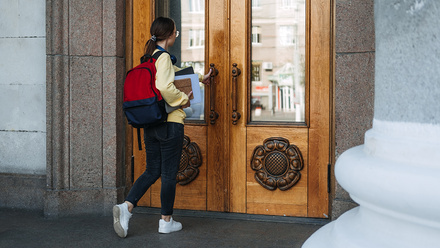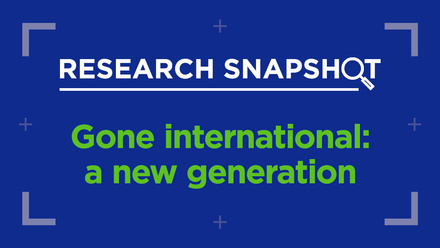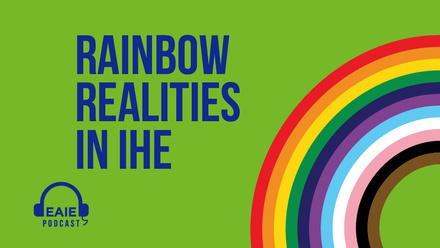Rubén Ávila Rodríguez: Celebrating pride, aiming for more

Every June, Pride Month celebrates the visibility, self-worth and dignity of the LGBTQI community across the world. Europe has come a long way toward becoming a place "where you can be who you are and love who you want – without fear of recrimination or discrimination" (State of the Union Address 2020 by President von der Leyen). And yet much work remains. Legal protections are incomplete, discrimination and bullying are still all-too-common, and people’s opinions about LGBTQI rights show disturbing discrepancies across European countries (Eurobarometer 2019).
In this episode, IGLYO Policy and Research Manager Rubén Ávila Rodríguez shares insights into the experiences of LGBTQI students in today’s Europe, and offers suggestions for what higher education institutions can do to help ensure that this community thrives.
About Rubén Ávila Rodríguez
Rubén Ávila Rodríguez (they/them) coordinates the policy and research work of the International LGBTQI Youth & Student Organisation (IGLYO). Rubén has been engaged in queer youth activism since they were 20, and has previously worked with Stop Sida in Spain. Their current projects span across inclusive education, legal and policy benchmarking, best practice exchange, and advocacy.
Further reading
For further insights into the topics touched on in this episode, the following resources may be of interest:
2018 Spring Forum: Our gendered world
EAIE Conference Conversation Starter 2019
Don't look away: no place for exclusion of LGBTQI students: (UNESCO and IGLYO)
Guidelines for Inclusive Education (IGLYO and OBESSU)
LGBTQI Inclusive Education Report (IGLYO)
LGBTQI Inclusive Education Index (IGLYO)
Stay tuned
Already looking forward to the next episode of the EAIE podcast? Be sure to subscribe via Spotify, Google Podcasts, Apple Podcasts, or your preferred app.






